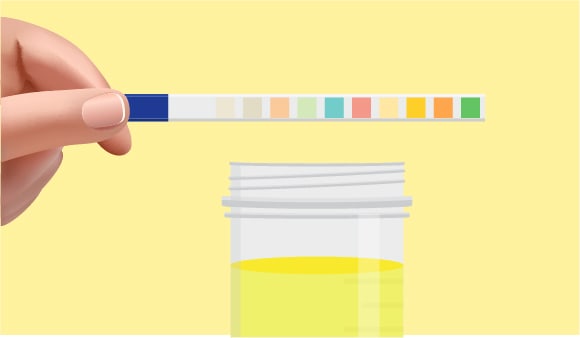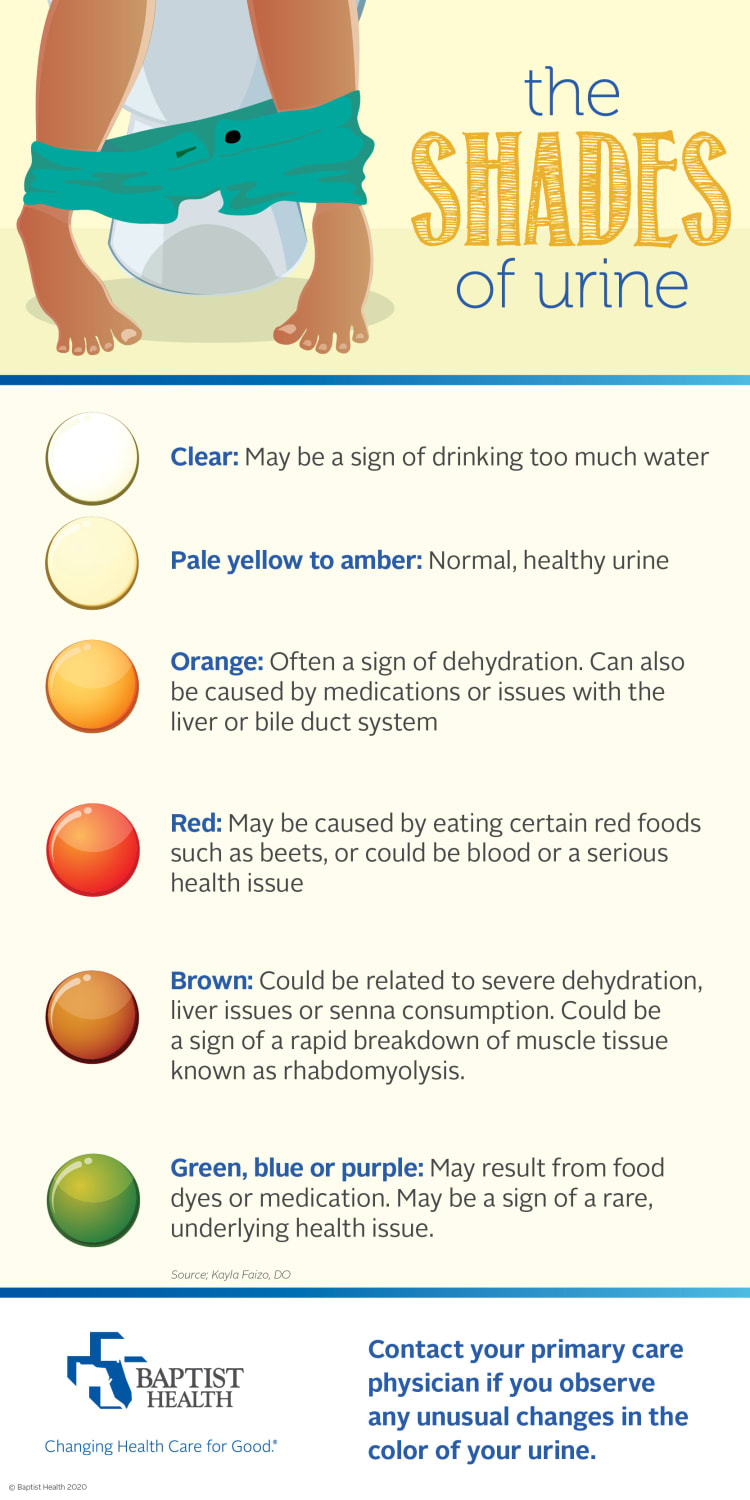Shades of pee
Urine luck, your drips can say a lot about your health.
Article Date:

After using the restroom, there’s a reason you should look before you flush.
Kayla Fazio, DO, a family physician with Baptist Primary Care, said urine can be used as a tool to determine problems within the body.
“Urine can be a good indicator of our hydration status,” Dr. Fazio said. “But it can also be used to identify underlying health issues such as infections and chronic conditions.”
Colors of the rainbow
Clear pee is a sign of hydration, too much in fact! Contrary to popular belief, a normal, healthier shade ranges from a pale yellow to a darker, almost amber hue. Color can fluctuate throughout the day and any shades within this range shouldn’t be a cause for alarm. But if you notice that your urine is on the darker end, it may be time to grab some water.
Certain foods can give your pee a red tint (beets are a common culprit). However, red urine can also indicate a serious health issue, such as blood in the urine caused by an infection, kidney stones or bladder disease.
Urine can appear on the orange side if you are dehydrated. Drinking more water should help your urine return to a healthy yellow. Some common over-the-counter (OTC) medications like phenazopyridine, used to relieve urinary tract infection symptoms, can also cause orange urine. But orange urine can also signal issues with the liver or bile duct system.
Brown urine can be caused by more severe dehydration. It can also be a sign of a life-threatening condition called rhabdomyolysis, a rapid breakdown of muscle tissue. Other causes of brown urine include liver issues or consuming laxatives containing senna, an herb used to treat constipation.
Completing the rainbow, green, blue and purple pee occur much less frequently. They are most commonly caused by food dyes or medication, but in rare cases, may be the sign of an underlying health issue.
“If you experience any colors out of the ordinary or feel discomfort while urinating, it’s always a good rule of thumb to contact your doctor,” Dr. Fazio said.

To find the right doctor for you, call 904.202.4YOU or visit Baptist Primary Care to make an appointment.



